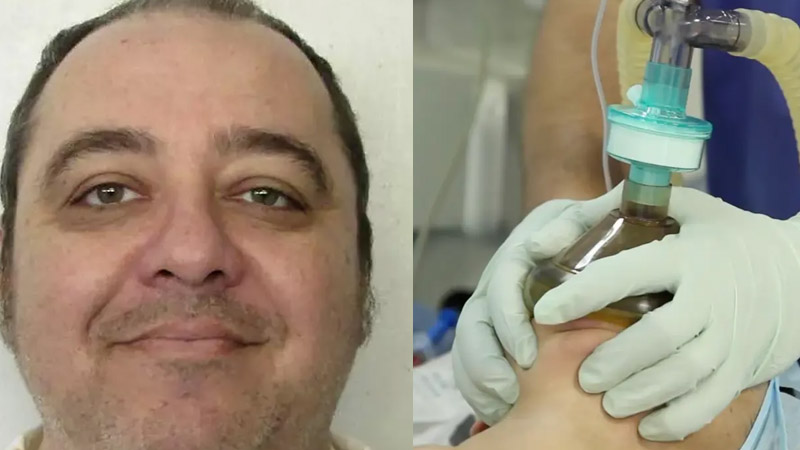Alabama Executes Inmate Kenneth Eugene Smith Through Groundbreaking Nitrogen Gas Method, Igniting Debate on Cruelty and Ethics

(CBS News)
On Thursday night, an Alabama death row inmate, Kenneth Eugene Smith, aged 58, was executed at Holman Prison in Atmore. Notably, this marked the first instance in the United States of an individual being put to death by nitrogen gas. Despite Smith’s legal attempts to block the experimental execution being rejected by the Supreme Court, he succumbed to inhaling the toxic gas through a mask, leading to oxygen deprivation until he ultimately suffocated. The execution was finalized at 8:25 p.m.
In his final statement, Smith expressed a poignant sentiment, declaring, “Tonight Alabama causes humanity to take a step backward. … I’m leaving with love, peace, and light.” As a gesture to his family members present as witnesses, he conveyed an “I love you sign” and thanked them for their support.
The entire execution process spanned approximately 22 minutes, during which Smith appeared to remain conscious for several minutes. Observers noted moments where he seemed to writhe on the gurney, pulling against restraints. He continued to breathe heavily until his breath became imperceptible, told The Guardian
Convicted in 1988 for the murder-for-hire of a preacher’s wife, Smith spent over three decades behind bars. His second attempt to halt the execution was rejected by a federal appeals court on Wednesday, with the Supreme Court clearing the way at the last minute on Thursday.
This execution followed a previous botched lethal injection attempt in November 2022 in the same death cell. In that instance, medical personnel struggled to find a suitable vein, leading to the procedure’s cancellation.
Before the execution, Smith expressed his apprehension about the controversial method, sharing his nightmares and stating, “I’m still suffering from the first execution, and now we’re doing this again.”
During the final meal, Smith consumed a T-bone steak, hash browns, toast, and eggs smothered in A1 steak sauce. Before his death, he met with family members and Rev. Jeff Hood, his spiritual adviser.
This execution marked the introduction of a new method since lethal injection’s inception in 1982. Alabama, facing challenges in obtaining lethal injection drugs, adopted nitrogen gas as an alternative. Despite concerns raised by experts and the United Nations about the potential for a painful and inhumane death, Alabama proceeded with the execution, making it one of only three states allowing nitrogen gas for this purpose.
Smith’s attorneys argued that their client was being used as a “test subject,” contending that the execution method violated the constitutional ban on cruel and unusual punishment. Justice Sonia Sotomayor, among dissenting Supreme Court justices, remarked, “Having failed to kill Smith on its first attempt, Alabama has selected him as its ‘guinea pig’ to test a method of execution never attempted before. The world is watching.”
Critics, such as Abraham Bonowitz of Death Penalty Action, drew parallels between Alabama’s “experimentation” and historical atrocities, likening it to what the Nazis did to Jews during World War II.
In recounting Smith’s criminal history, he and another man were convicted in the murder-for-hire of a preacher’s wife in 1988. The victim, Elizabeth Sennett, was found stabbed to death in her home. Charles Sennett, the preacher, and husband, committed suicide a week later. Charles Sennett Jr., the victim’s son, expressed that Smith “has to pay for what he’s done,” emphasizing the brutality of the crime. In 2023, 24 inmates were executed in the U.S., all through lethal injection.


